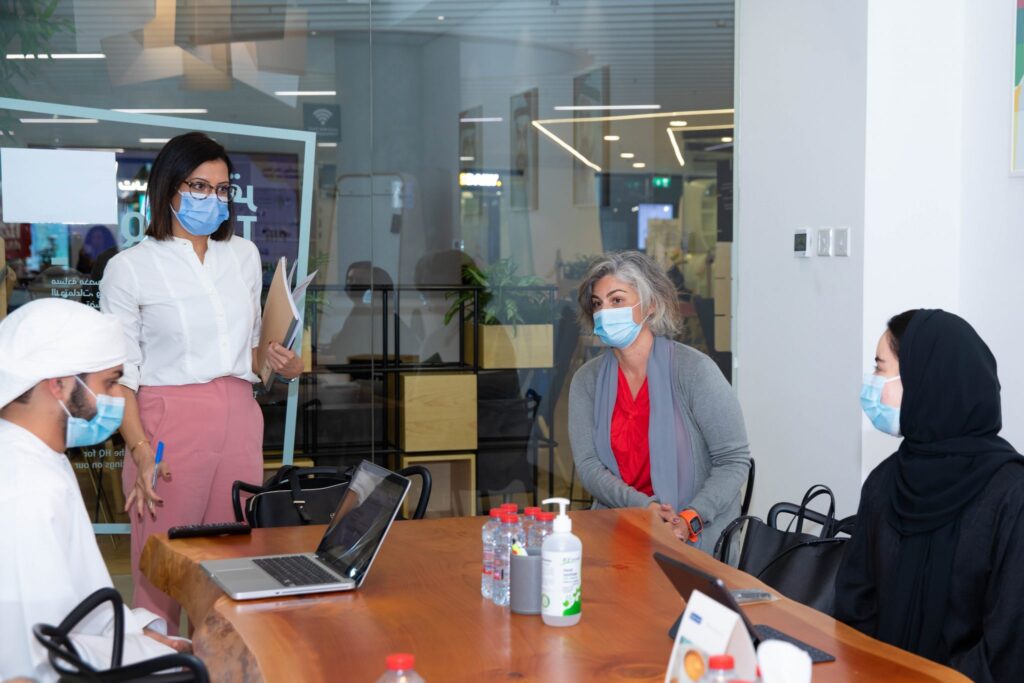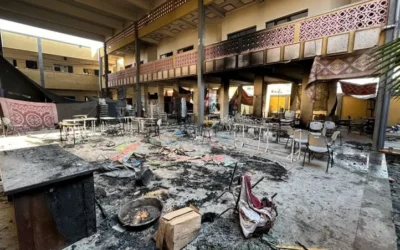Why fresh graduates need effective internships
Internships have often been regarded as a key solution for the transitional period between university and work as experiences that offer immersive, foundational, and practical skills that are essential to securing a job after graduation.
The fact that youth in the 22 Arab states face barriers when looking for employment is now part of everyday conversation.
When considering that 60 percent of the population of the Arab states is under the age of 25, it is not surprising that, with their limited work experience, finding even an entry-level job is difficult and becoming harder. In addition, structural barriers continue to prevent them from entering the labour market and, as a result, young people are three times more likely to be unemployed than adults over the age of 25.
Given that this is the experience of their classmates and cousins – how can we expect youth to be hopeful?
And yet, they are hopeful. Youth keep searching and applying for jobs despite hearing again and again that employers find that new graduates lack the soft skills required in today’s job market and are inadequately prepared during their university years.
This reality exists despite government investment in the provision and funding of higher education to achieve economic growth in the region. After all, education is highly valued within the Arab culture in terms of social capital and the opportunities it offers, and a critical aspect in building a strong foundation of economic development.
While attendance to universities is growing, the well-documented high ratio of youth unemployment in the region is cause for concern. Nearly 30 percent of university graduates in the Middle East and North Africa (MENA) are unemployed, with female participation in the workforce being one of the lowest in the world and fresh graduates struggling the most.
But it is impractical to keep expecting universities to prepare today’s youth for the workforce without the responsible support of employers. Purposefully creating opportunities for university students to learn from workplace experiences is quintessential to bridge the gap between education and employment.
While higher education holds the promise of increasing youth employment in the MENA region and creating opportunities for growth, higher education institutions need robust and responsible alliances with corporations to make the transition to the job market possible.
Internships have often been regarded as a key solution for the transitional period between university and work as experiences that offer immersive, foundational, and practical skills that are essential to securing a job after graduation.
Effective internships cultivate the top skills in question – including critical thinking, innovation, and creativity – as well as the ability to communicate effectively especially when dealing with complex issues and ambiguity. According to data from the National Association of Colleges and Employers (NACA), students that complete an internship register a 16 percent increase in job offers compared to those that do not complete an internship.
So, how can we support fresh graduates for a place within this fast-paced and changing workforce? Currently, there is an inadequate number of accessible, high-quality internships available that lead to purposeful and actionable experiences that can tip the scales in favour of these eager, hopeful youth.
Although the impact of internship programs on professional growth is undisputed, there is still much to do to ensure internships address the core issues and this work needs to be done in partnership with key stakeholders across sectors in a nexus model.
Political tensions and social instability have undoubtedly played their role in the high rates of unemployment. This is further compounded by ineffective reforms within the public sector, regional conflicts, trade protectionism, and the Covid-19 pandemic. Yet, the potential for economic growth in the MENA region is massive.
Senior sustainability and government affairs expert Joe Y. Battikh recently published on the substantial opportunity for growth and a viable job creation solution for graduates that the energy sector alone holds in the region. Strategically creating workplace learning programs – like internships – will make these jobs and others more accessible to Arab youth and increase the region’s employment rate.
The solution to harnessing higher education skills within the workforce is multi-faceted and will require the collaboration and commitment of players from all key sectors, including higher education and the students they serve.
Recent graduates are aware that the market demands are constantly shifting. They now need to be prepared to update their learning style and look for existing associations and agreements between their universities and companies that provide effective internships that improve employability.
As the future of the workplace is rapidly evolving into a more flexible and connected model, we must ask ourselves how the skills that we value are actively encouraged?
By investing in internships, we allow graduates to rapidly evolve alongside changing market needs and be ready to face unforeseen challenges. Moreover, employers will have responsible influence on the upcoming workforce, proving that when we work together for the mutual interests of our collective development, we co-construct sustainable solutions.
Dr. Sonia Ben Jaafar, Chief Executive Officer, Abdulla Al Ghurair Foundation for Education



